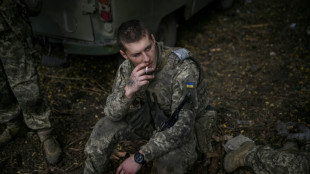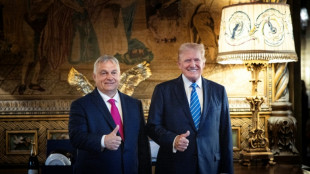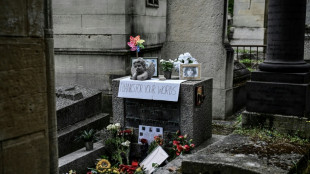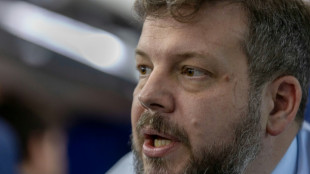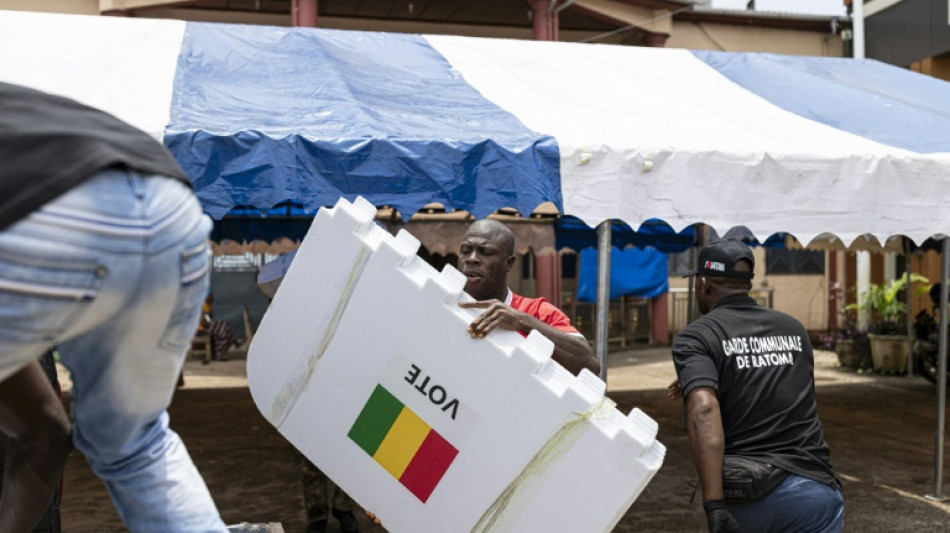

Guinea to vote in constitutional referendum boycotted by opposition
Four years after the military seized power, Guineans will finally vote Sunday on a new draft constitution that would pave the way for elections but also permit the country's junta leader to run for president, in a referendum boycotted by the opposition.
The vote, which Guineans and the international community have been awaiting for years, opens the way for stalled political elections in the West African nation.
The country has been ruled with an iron fist by junta chief General Mamady Doumbouya since he overthrew elected civilian president Alpha Conde in 2021.
Some 6.7 million Guineans will be able to cast a ballot, out of a population of approximately 14.5 million people, when polling stations open at 8:00 am (same time GMT) on Sunday.
After polls close at 6:00 pm, results are not expected until Tuesday evening at the earliest, according to the country's election body.
- Security measures -
Authorities are deploying no fewer than 45,000 members of the defence and security forces across the country Sunday to secure the vote, along with 1,000 light and armoured vehicles and combat helicopters, the National Gendarmerie said.
Guinea's military initially pledged to return power to civilians before the end of 2024.
Although its authorities are now promising presidential and legislative elections before the end of the year, the junta has not yet set a date.
Campaigning has been strong in the referendum's "yes" camp: rallies, marching bands and posters depicting 40-year-old Doumbouya have been prevalent throughout the country.
The "no" campaign, however, was virtually non-existent, mainly taking place on social media and often led by the junta's critics abroad who fled the country's crackdown on dissent.
Since 2022, the junta has banned demonstrations and has arrested, prosecuted or pushed into exile several opposition leaders, some of whom were victims of forced disappearances.
On August 23 the junta suspended two of the country's main opposition parties for three months.
Several media outlets have additionally been suspended and journalists arrested, creating a climate of fear in the press.
- Electoral 'charade' -
Given that context, Guinea's opposition has called on voters to stay home, denouncing the vote as a "charade" for the junta to keep its hold on power, with the referendum's outcome determined in advance.
If adopted, the new constitution would replace a "transition charter" established by the military government, which had prevented the junta's leaders, government members and heads of institutions from standing in elections.
The stipulation does not exist in the draft constitution, thereby paving the way for a presidential run by Doumbouya. All signs point to him standing for office.
Prime Minister Amadou Oury Bah told AFP he believes that "Guinea aspires to a dynamic of change and unity", and that the draft constitution "takes into account all the demands" that Guineans have wanted in recent decades.
Many of the draft constitution's articles are progressive. One establishes a High Court of Justice to try presidents and members of the government in order to fight impunity.
Another creates a Senate to balance power, while yet another promotes a greater gender balance, with a mandatory quota of at least 30 percent women in decision-making and elected positions.
But the draft also contains items that have been heavily criticised by the opposition.
By stipulating that candidates must be between 40 and 80 years of age and have their primary residence in Guinea, it effectively excludes two of the main opponents.
Former president Conde, 87, is living in exile in Istanbul, while opposition leader and ex-prime minister Cellou Dalein Diallo, age 73, lives in Dakar and Abidjan.
Since Guinea's 2021 coup, it has remained suspended from the African Union (AU).
Meanwhile the Economic Community of West African States (ECOWAS), which sent a mission to Guinea in recent days, has not invited it to participate in its heads of state meetings.
Writing on X, the UN Human Rights Office of the High Commissioner urged "the military authorities to ensure Sunday's constitutional referendum is peaceful & transparent".
It added that "recent bans on political parties & media outlets raise serious questions about inclusiveness & free participation for all".
G.Winkler--NWT
